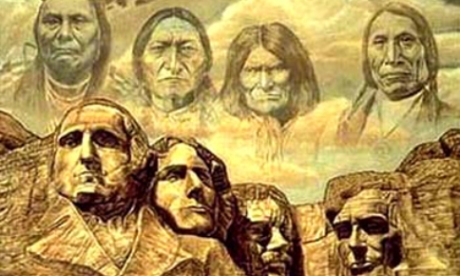Pressure is growing on Rome to explicitly reject a series of 15th century papal bulls and decrees that justified the colonisation of indigenous peoples.
The Leadership Conference of Women Religious in the United States is calling on Pope Francis to clarify and repudiate any remaining legal status of what is known as the “Doctrine of Discovery”.
The LCWR also wants the Pope to issue a pastoral statement to courts of settler nations, urging them to change laws derived from the doctrine.
The Doctrine of Discovery is a series of papal bulls, or decrees, which gave Christian explorers the right to lay claim to any land that was not inhabited by Christians and was available to be “discovered”.
If its inhabitants could be converted, they might be spared. If not, they could be enslaved or killed.
The Doctrine of Discovery remains influential in legal circles and, since 1823, has been enshrined in US law.
It is often cited as a way of arguing that nomadic Native American Indians occupied the land, but did not own it.
In 2005, US Supreme Court Justice Ruth Bader Ginsburg cited the doctrine in a land-claim ruling against the Oneidas nation.
Late last year, 13 Catholic groups, including the Loreto sisters, officially asked the Pope to rescind the decrees.
“When I learned about it, I was horrified,” said Loreto Sister Maureen Fiedler, who has sent a letter to the Pope on the subject.
Her order marked its 200th anniversary by challenging “the papal sanctioning of Christian enslavement and power over non-Christians”.
US indigenous groups have sought to overturn the doctrine since at least 1984.
In its 2007 Declaration of the Rights of Indigenous Peoples, the United Nations condemned policies like the Doctrine of Discovery.
If the Church was to disavow the doctrine, it would remove a legal argument against tribal land claims, said Oren Lyons, a faith keeper of the Turtle clan in the Onondaga nation.
The Vatican has said that later bulls and papal apologies show the Church no longer supports the doctrine.
“The wrongs done to the indigenous people need to be honestly acknowledged,” Saint John Paul II said in 1998.
He also delivered a sweeping apology in 2000 for the Church’s mistreatment of groups, including indigenous peoples.
Sources
